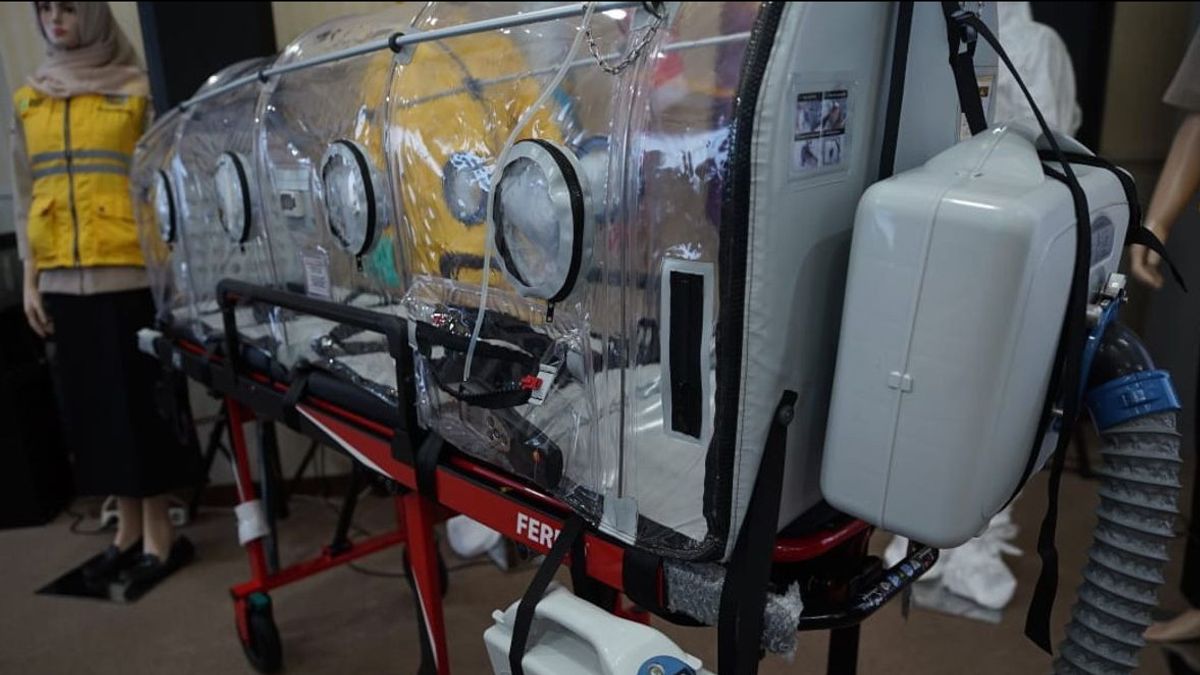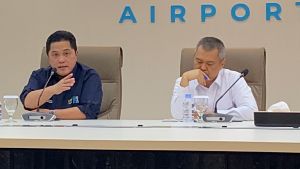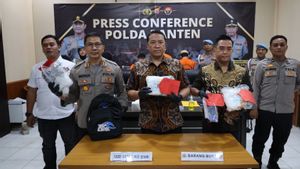JAKARTA - After the chaotic handling of COVID-19 in Indonesia, which is considered slow, resulting in many positive COVID-19 patients, now, the phenomenon of rejection of the corpses of positive corona patients and patients under surveillance (PDP) continues to occur in several areas.
In South Sulawesi, for example, residents around the Pannara cemetery, Manggala, Makassar blocked an ambulance carrying a body. This car was intercepted after residents became suspicious of an ambulance driver wearing personal protective equipment (PPE).
Then in Central Java, residents in four sub-districts, namely East Purwokerto, South Purwokerto, Patikraja District and Wangon District refused to bury the bodies until finally these bodies were buried on land owned by the Regency Government, precisely in Tumiyang Village, Banyumas Regency.
However, after the funeral took place, rejection came back from the residents. They asked that the bodies be removed on the grounds that they were worried about the health impacts among the residents. Furthermore, this tomb was dismantled and its demolition was led by Banyumas Regent Achmad Husein.
The large number of rejections of the bodies made the Fatwa Secretary of the Indonesian Ulema Council (MUI) Asrorun Niam Soleh speak up. He said, if the protocol for handling the bodies had been implemented properly, there was no need to worry that the bodies of PDPs or positive COVID-19 could transmit their disease.
He also reminded not to worry that people will sin because they do not fulfill their obligations to the right of the body to get a proper burial.
"Don't let it be due to our worries that lack of knowledge, and then we sin because we don't fulfill our obligations for the rights of the corpse," Asrorun said in a virtual press conference broadcast on the BNPB YouTube account, Saturday, April 4.
"By refusing the inj burial, it means two sins. The first sin does not fulfill the obligation of the body and then, the second, obstructs the fulfillment of the obligation to the body," he added.
From a medical point of view, the Managing Director of RSI Jakarta Sukapura, Umi Sjarqiah explained that there is nothing to worry about from the bodies of those who are positive for COVID-19, as long as their management is carried out from the time they are declared dead until burial is carried out according to the existing standard health protocols.
"A body that has been handled properly, is safe to bury because the virus only lives in the living cells. So, the bodies that have been buried do not transmit the virus," said Umi in the same press conference.
"Once again, the bodies that have been buried do not transmit the virus," he added.
In addition, burial of a corpse that is positive for COVID-19 is usually carried out by wrapping the body in plastic before wrapping the shroud. "Then again with plastic, body bags, then crate. That's the arrangement," explained Umi.
The officers, said Umi, also always use personal protective equipment (PPE) in carrying out the funeral. After the funeral, officials will also disinfect their bodies to keep them free from the virus.
So according to Umi, instead of refusing the body, the community should focus on minimizing the risk of virus transmission by minimizing contact with the body. One way is to replace the funeral prayers with occult prayers and perform takziah online.
"Therefore, do not worry and do not panic, let alone reject the funeral. Do the right protection and ask the experts," he said.
Just like refusing the body of a martyr
In the press conference, MUI, through the Secretary of the Fatwa Commission, Asrorun Niam also said those who died because of COVID-19 had honor and honor. In fact, they are judged to be martyred.
"Every Muslim who becomes a victim is a martyr in the hereafter. He has glory and honor in front of Allah," said Asrorun, adding that Muslim bodies must be treated in accordance with the Shari'a without prejudice to health protocols.
If it cannot be washed, then the body is scented or immediately dipped and covered with plastic so that there is no transmission of disease through fluids.
With the martyrdom of the victims who died of COVID-19, according to the Chairperson of the NU Cares for COVID-19 Task Force, Muhammad Makky Zamzam, there should be no more rejection of the corpse.
"When the body dies, yes, and it is a category of martyrdom, the community should empathize and accept the corpse. Because the body is a martyr, there should be no rejection or stigma against the health worker or the officer carrying the body," said Makky.
Even if there is a negative stigma, according to him, it can be aimed at people whose families have clearly died from COVID-19 but are forcing them to bring them home and cause the spread of the virus to occur in their midst.
Meanwhile, families who strictly follow government regulations and health protocols in taking care of bodies, said Makky, must be given enthusiasm and motivation.
"Because from the process of the corpse or this patient undergoing death sentence, it cannot be accompanied by the family. When the process of washing the body, it is even said that it is not accompanied by the family. They only deliver it a considerable distance from the funeral," he explained.
"Do not give a negative stigma. So that the family also feels calm, at ease and should not be shunned," he concluded.
The English, Chinese, Japanese, Arabic, and French versions are automatically generated by the AI. So there may still be inaccuracies in translating, please always see Indonesian as our main language. (system supported by DigitalSiber.id)













